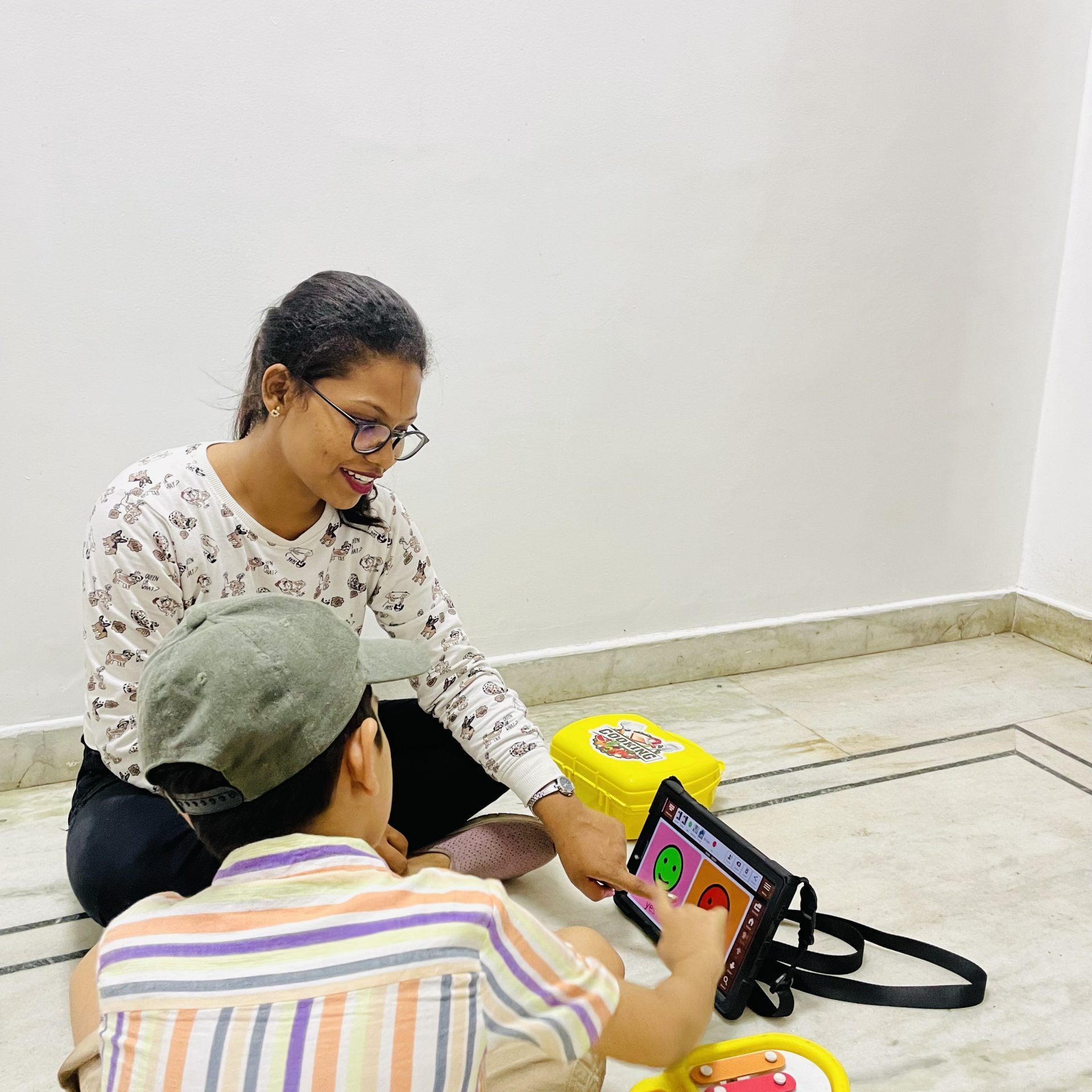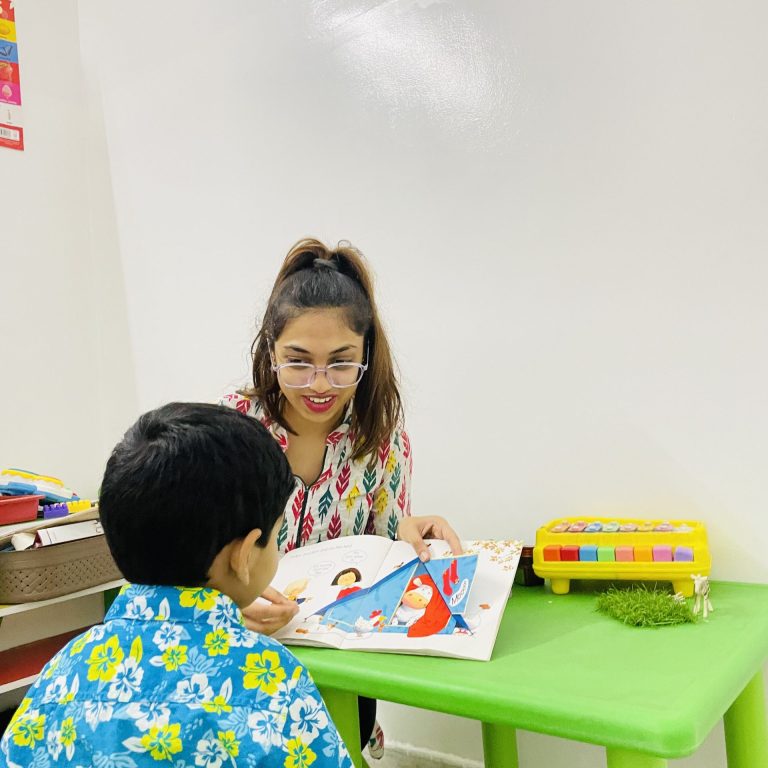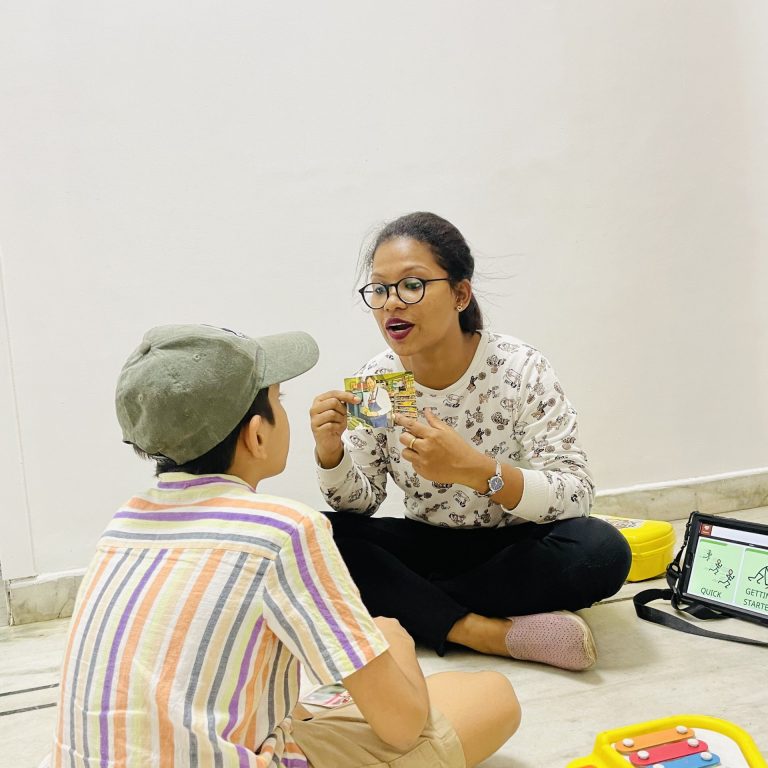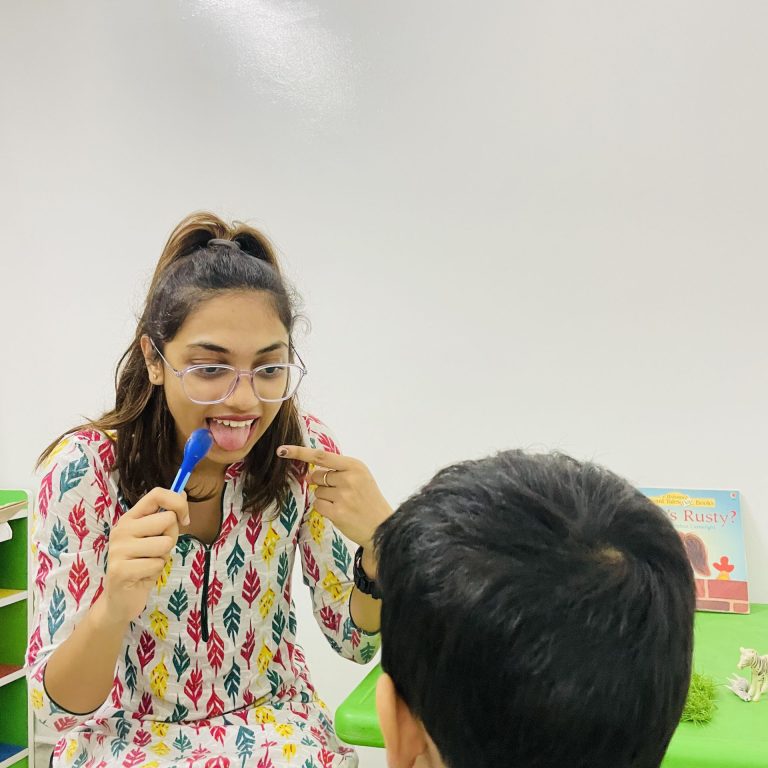Occupational therapy is a branch of health care that helps people who have physical, sensory, or cognitive problems to regain independence by using everyday activities, exercises, and other therapies.
Signs Your Child Needs Occupational Therapy
-
Does your child face difficulties with day-to-day activities at home, school, or in the community? Some of them look like:
- Difficulty self-regulating, transitioning, or engaging with peers
- Meltdowns, tantrums, or fidget behavior
- Difficulty achieving age-appropriate milestones
- Sensitivity to clothing textures, tags, messy activities, food textures, or loud noises
- Difficulty with dressing, self-feeding, or shoe tying
- Difficulty holding or using toys
- Poor pencil grasp, writing, drawing, or cutting


Common Diagnoses
-
Our trained and certified specialists work with children with different conditions such as:
- Autism
- Down’s Syndrom
- Cerebral Palsy
- ADHD
- Learning Disability
- Sensory Processing Disorder
Speech Therapy at EAS
At EAS, our approach to speech therapy stands out because we prioritize your child’s overall development. Instead of just focusing on speech, we take a holistic view, considering their well-being as a whole. We integrate sensory regulation into our therapy sessions, understanding its importance in communication.
Our methods are centered around play-based learning and tailored to your child’s needs, ensuring they thrive in any environment.
Moreover, we believe that every child deserves a voice. That’s why we emphasize total communication, providing diverse ways for your child to express themselves effectively.
Our program can help your child:
- Develop functional communication through AAC
- Produce age-appropriate speech sounds
- Learn new social skills for stronger interactions with peers
- Learn to formulate sentences
- Oro-Motor Skills through sensory integration for feeding and speech



Collaborative Approach
At EAS, we have the ability to interact with an interdisciplinary team by having in-house experts in ABA Therapy, Occupational Therapy, and Speech/Language Therapy all within the same clinic. We value collaboration with caregivers, teachers, and therapists outside of EAS and realize that collaboration is essential in creating effective carry-over from our clinic to the home and school.



FAQ
My child has Autism, do they need Speech/Language Therapy?
Children on the autism spectrum may have a difficult time learning and using language. The autism diagnosis generally includes delays in social-emotional growth, deficits in non-verbal communication, deficits in maintaining or understanding relationships, as well as stereotypical/repetitive speech and/or echolalia. SLPs are trained to address all of these areas during your child’s therapy.
My child still has significant behaviors, are they ready for speech/language therapy or occupational therapy?
Absolutely! There are no specific expectations or behavioral criteria for your child to participate in therapeutic interventions. Our SLPs and OTs at EAS are trained to provide services for every child. The collaborative approach also helps our therapists better understand your child’s behavioral needs in order to maximize success and progress.
Do you provide Speech Language Therapy services to children who do not have an Autism Diagnosis?
Yes! We are accepting children with any diagnosis for Speech/Language and Occupational Therapy Services.
What would a speech/language therapist do to help my child learn language?
SLPs have a specific expertise in meeting your child at their current language level to help build skills through structured play therapy, modeling, and providing meaningful and rewarding opportunities for your child to learn to communicate.
ABA addresses language and communication too, how is Speech/Language therapy different?
This is correct! Building functional communication skills through positive reinforcement is a key part of the ABA program. The purpose of this is to help decrease and replace behaviors through increasing communication opportunities. SLPs take this one step further, by building a wider variety of vocabulary, social language skills, teaching alternative communication methods, and focusing on creating a language rich environment during therapy based on your child’s specific needs. SLPs teach children not only to request items or help, but to learn to understand how to comment on the environment, gain information, initiate social interaction, share personal interests, ask questions, and more.
